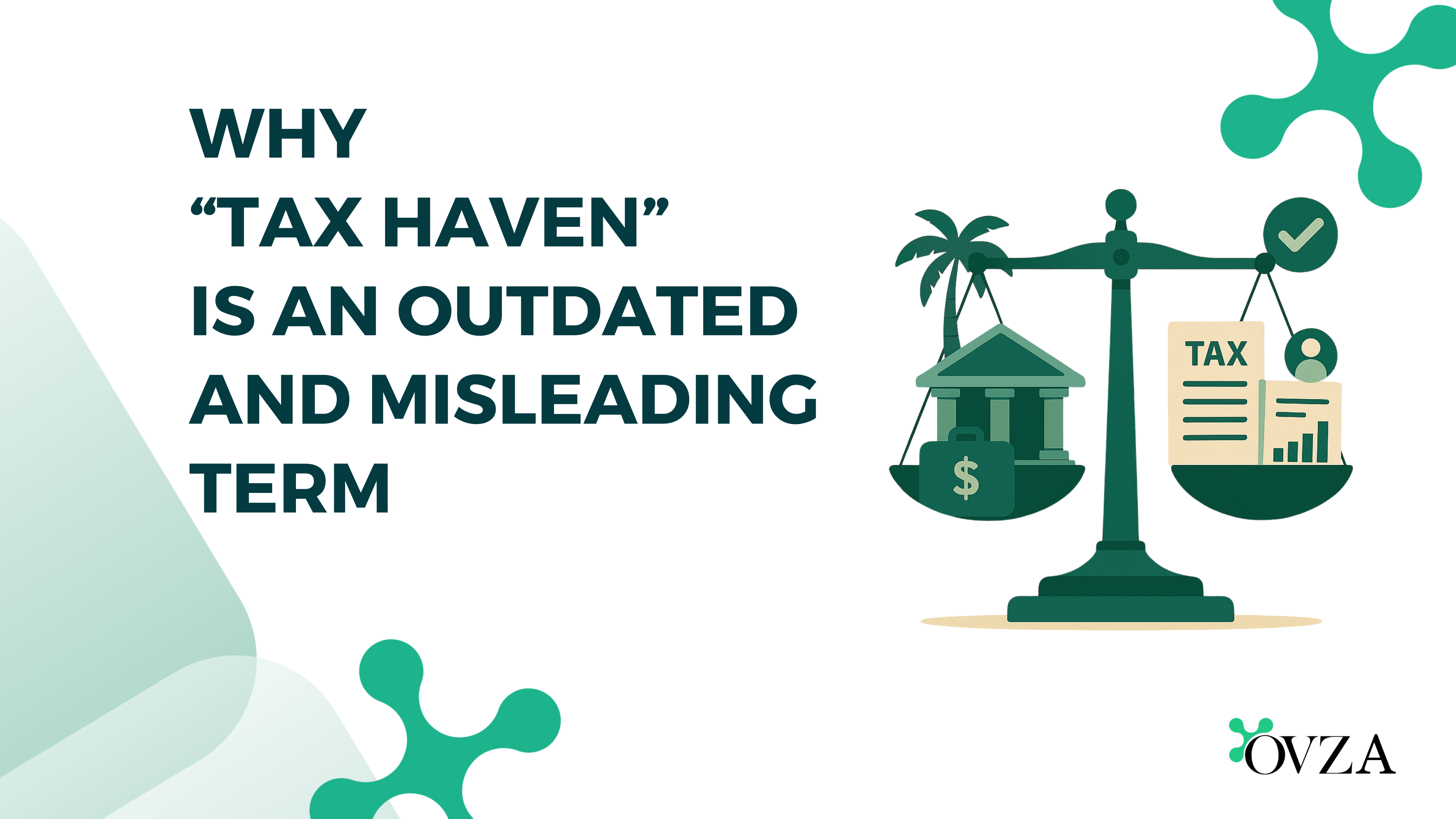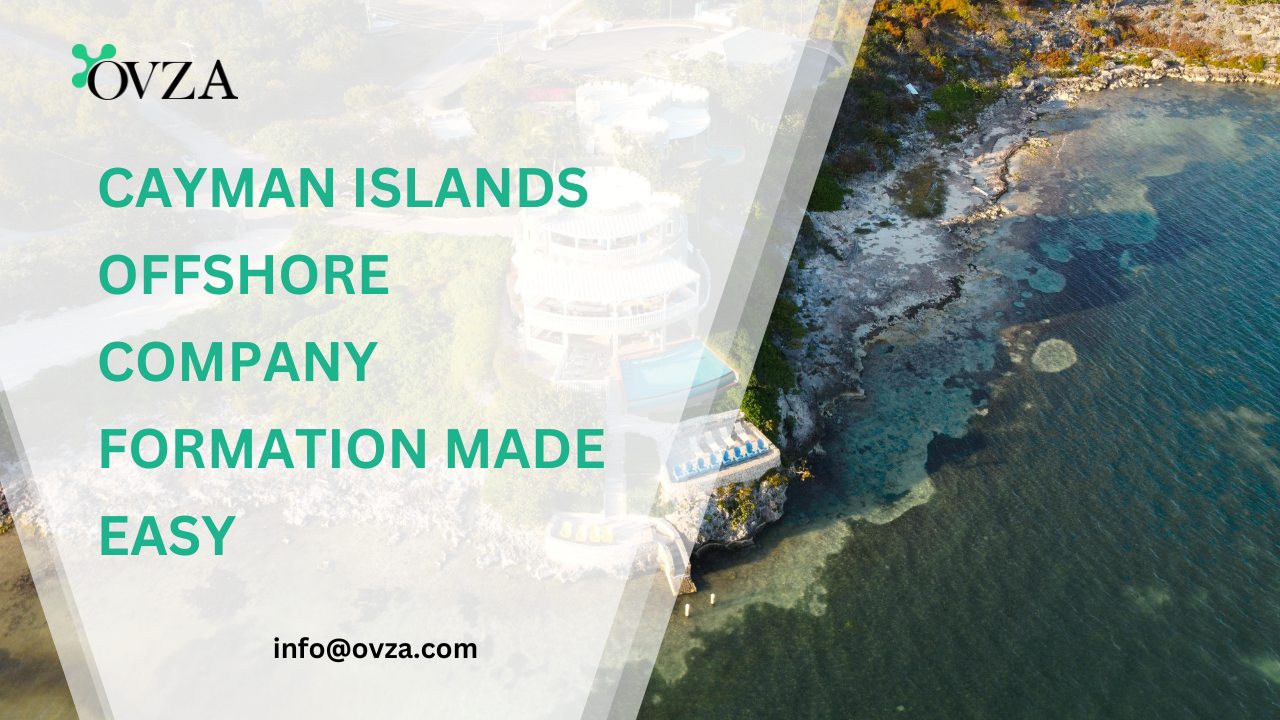The phrase “tax haven” has long been used to describe jurisdictions offering low or zero taxation, strict financial privacy, and favorable regulatory environments. It is commonly associated with secrecy, tax evasion, and unethical financial behavior. However, in 2025, the realities of international business and financial compliance have changed so significantly that the continued use of the term tax haven is no longer accurate, nor helpful in understanding the global regulatory landscape. While the concept of a tax haven once referred to jurisdictions with little or no tax liability and impenetrable privacy laws, that definition no longer reflects the legal and operational standards of most modern offshore jurisdictions.
Today, the label tax haven is more myth than reality. It oversimplifies the legal structures of jurisdictions that have since implemented strict transparency and due diligence regimes. Moreover, it perpetuates the misconception that any business operating outside of a high-tax jurisdiction is inherently suspicious. In reality, the offshore world has evolved. Reputable jurisdictions have aligned themselves with global compliance standards, and businesses that operate within these frameworks do so legally, transparently, and with proper regulatory oversight.
In order to understand why the term tax haven has become so misleading, it is important to first examine what it originally meant and how it functioned historically within the context of global finance.
Historical Understanding of the Tax Haven Concept
Historically, the term tax haven emerged to describe jurisdictions that offered extremely low or zero tax rates to foreign individuals or corporations. These countries or territories attracted international businesses by allowing them to establish legal entities without the burden of paying local income or corporate tax, often without even requiring a physical presence or local economic activity. In addition to favorable tax treatment, these jurisdictions were also known for offering high levels of confidentiality, limited reporting requirements, and non-cooperation with foreign tax enforcement agencies.
During the late 20th century, many multinationals and high-net-worth individuals leveraged these tax haven structures not only to reduce tax exposure but to obscure beneficial ownership and asset location. This environment, while technically legal in many cases, led to the widespread belief that tax havens were primarily vehicles for hiding wealth or avoiding lawful obligations. The international community, particularly organizations like the OECD and the Financial Action Task Force (FATF), began to scrutinize these practices and labeled certain jurisdictions as “non-cooperative” due to their lack of transparency and regulation.
However, that era has passed. The model of the unregulated tax haven has become largely obsolete. In its place, modern offshore jurisdictions have redefined themselves through legal reforms, transparency commitments, and enhanced regulatory frameworks. The next section will outline the major international regulations that have reshaped the global offshore landscape—and why many so-called tax havens now operate with more compliance requirements than traditional onshore jurisdictions.
International Reforms and the End of the Classic Tax Haven
Over the past two decades, a sweeping transformation has taken place in jurisdictions historically labeled as tax havens. Following global financial scandals and mounting pressure from multilateral organizations, countries once known for minimal oversight were compelled to implement new frameworks aligned with international standards. The result is that many jurisdictions previously referred to as tax havens now enforce rigorous compliance measures that exceed those found in many high-tax, onshore countries.
This evolution has been driven in large part by regulatory initiatives from the Organisation for Economic Co-operation and Development (OECD), the Financial Action Task Force (FATF), and the implementation of cross-border information exchange protocols such as the Common Reporting Standard (CRS). These global instruments have effectively ended the era of anonymous company ownership, compelled automatic information sharing between tax authorities, and mandated economic substance requirements in jurisdictions once considered traditional tax havens.
At OVZA, we have directly witnessed the impact of these reforms across the jurisdictions we work with. In several offshore countries, it is no longer sufficient to simply submit a passport copy to register a company. In jurisdictions like Antigua and Barbuda and St. Kitts and Nevis clients must now provide a bank reference letter, a professional reference from a licensed attorney or accountant, and a recent police clearance certificate. These documents are not optional. They are required by law as part of robust Know Your Customer (KYC) and Anti-Money Laundering (AML) protocols.
Ironically, many “onshore” jurisdictions, which often critique the use of offshore structures, do not impose the same level of due diligence—allowing companies to form with little more than a scanned passport and minimal identity verification.
The application of economic substance rules further underscores the shift away from the traditional tax haven model. Jurisdictions such as the Cayman Islands, British Virgin Islands, and Seychelles now require companies engaged in certain activities to maintain adequate physical presence, incur local expenditures, and demonstrate real governance in the country of incorporation. These obligations reflect a clear break from the past when a tax haven was defined by its lack of operational or regulatory requirements.
Thus, the legal landscape has fundamentally changed. What once qualified a country as a tax haven is no longer permitted under international law. In many cases, these jurisdictions have become highly regulated, transparent, and cooperative with international bodies—qualities that are inconsistent with the label they continue to carry.
Modern Offshore Structures Are Built on Compliance, Not Secrecy
The offshore structures that OVZA helps clients establish are not designed to conceal ownership or facilitate unlawful behavior. On the contrary, they are structured to meet the highest legal standards of due diligence, corporate transparency, and international reporting obligations. Today’s reputable offshore jurisdictions enforce strict protocols—often exceeding those in traditional onshore countries. In fact, jurisdictions still casually referred to as tax havens now commonly require a bank reference letter, a professional reference from a licensed attorney or accountant, and a police clearance certificate before approving company formation. By contrast, many high-tax countries allow incorporation with nothing more than a passport scan.
This fundamental shift in regulatory expectations has transformed what it means to operate offshore. These jurisdictions have embraced transparency, economic substance laws, and active cooperation with global authorities. They are no longer the secrecy-driven tax havens of the past—they are modern, sophisticated financial hubs that provide legal, neutral platforms for international business.
It’s also important to recognize that the persistence of the tax haven label may be rooted in something deeper than outdated financial definitions. Many of the jurisdictions most criticized today—such as those in the Caribbean and the Pacific—share a common thread: colonial history. Whether explicitly acknowledged or not, there appears to be an underlying discomfort in the global financial order with the idea that these once-dependent territories have asserted sovereignty, enacted their own laws, and built independent financial infrastructures. The narrative around “tax havens” is often less about objective legal critique and more about systemic efforts to delegitimize their autonomy—whether through discrediting their citizenship-by-investment programs, dismissing their company laws, or questioning their right to economic self-determination.
While former colonial powers continue to regulate themselves freely, they often imply that these jurisdictions do not deserve the same sovereign space to govern their financial systems. This double standard is not only legally inconsistent—it’s part of a broader issue of selective legitimacy. It’s time to recognize that compliance, transparency, and governance are not exclusive to the West, and the term tax haven is increasingly used not as a technical description, but as a political tool.
Conclusion
The term tax haven has outlived its relevance. Once used to describe opaque and unregulated financial centers, it now unfairly characterizes jurisdictions that have implemented some of the world’s most robust compliance regimes. Offshore no longer means secrecy—it means structure, strategy, and global efficiency.
Today’s offshore jurisdictions are not only lawful; they are essential tools for businesses operating internationally. With the right legal guidance and a compliance-first approach, companies can legitimately benefit from tax neutrality, asset protection, and jurisdictional stability—without the stigma or risk implied by the outdated label of a tax haven. It’s time to retire the rhetoric and start speaking in facts.
Disclaimer: The information provided on this website is intended for general reference and educational purposes only. While OVZA makes every effort to ensure accuracy and timeliness, the content should not be considered legal, financial, or tax advice.












